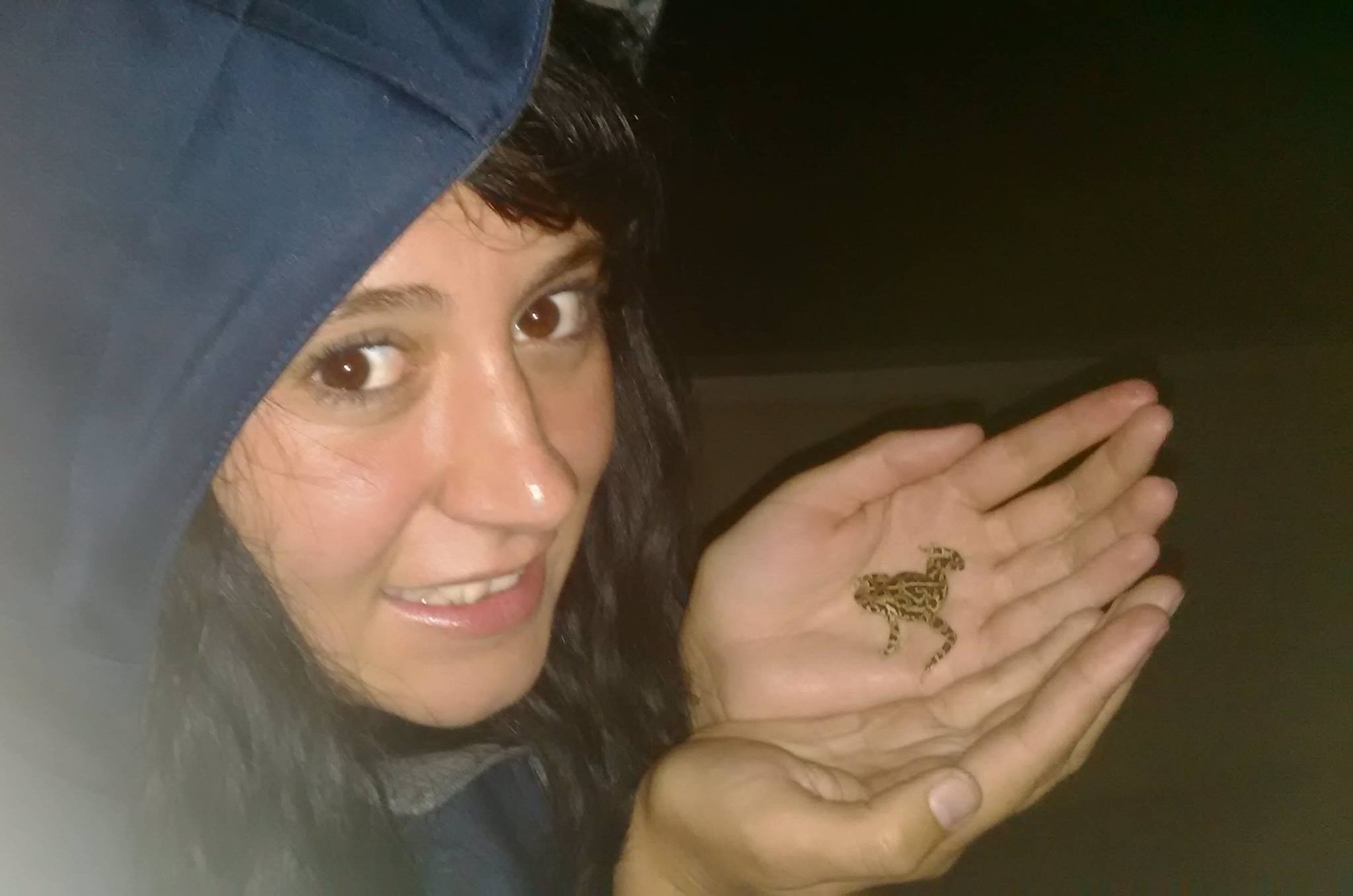Herpetology – it’s for her too

In the run-up to International Day of Women and Girls in Science, Dr Natasha Kruger, Lecturer in Animal Ecology at the School of Sciences, blogs about what sparked her interest to pursue a career in the world of Herpetology.
For a long time, the study of amphibians and reptiles also known as Herpetology was considered a male endeavour. However, many women also demonstrate enthusiasm for all things scaly and slimy – and I happen to be one of them.
I’m Natasha, a Lecturer in Animal Ecology at the University of Wolverhampton and an Invasion Biologist, focussing on invasive amphibians. In other words, I study amphibians that have been deliberately or accidentally released into an environment where they do not naturally occur and assess their impact on the native species and the environment itself.
My journey in this remarkable field started with a general interest in biology and wildlife. When I learned about the threats to amphibians and especially the threats of invasive species, I felt a call to action – something needed to be done and I wanted to be part of making a difference.
Now, seven years later, I am happy to be in a position where I can work with amphibians and contribute to their conservation by researching the many facets of invasive species. My research on one of the world’s most notorious amphibian invaders - the African clawed frog has contributed to our understanding of the factors that make them such successful and harmful invaders. Additionally, I have contributed to studies mapping areas where there is a high potential of them becoming invasive, assisting in identifying areas of conservation priority. Currently, my research involves studying the characteristics and impacts of another invasive amphibian – the Alpine newt in the UK.
This career choice might seem like a strange one for some, however, in recent years the #HERpetology movement aimed to normalise women in this field worldwide. Personally, I have been increasingly inspired by women and girls fearlessly stepping into a variety of different roles in Herpetology, from showing interest in snakes and amphibians to running laboratories and departments.
The field is changing, and I welcome the sight of more women attending and presenting at international conferences, taking up careers in academia and just enjoying amphibians and reptiles without being stereotyped in any way. Most importantly, I am excited to see that a community supporting women in this field is developing.
My journey to becoming a Herpetologist has not been an easy one and I still face challenges. However, I am honoured to be a #HERper and my passion for the field in addition to seeing more and more representation inspires me to persist and persevere.
My hope, is that with even more representation of women in Herpetology, more girls and women will have the confidence to follow their ambitions in science and especially in Herpetology as at the end of the day it is for HER too!
Find out more about studying at the School of Sciences at the University of Wolverhampton.
For more information please contact the Corporate Communications Team.


/prod01/wlvacuk/media/departments/digital-content-and-communications/images-2024/Diane-Spencer-(Teaser-image).jpg)
/prod01/wlvacuk/media/departments/digital-content-and-communications/images-18-19/220325-Engineers_teach_thumbail.jpg)
/prod01/wlvacuk/media/departments/digital-content-and-communications/images-2024/240509-Menopause-Research-Resized.jpg)
/prod01/wlvacuk/media/departments/digital-content-and-communications/images/Maria-Serria-(teaser-image).jpg)
/prod01/wlvacuk/media/departments/digital-content-and-communications/images-2024/241014-Cyber4ME-Project-Resized.jpg)
/prod01/wlvacuk/media/departments/digital-content-and-communications/images-2024/240315-Research-Resized.jpg)
/prod01/wlvacuk/media/departments/digital-content-and-communications/images-2024/BDA-group-photo.jpg)